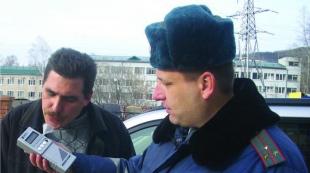Morphological signs of communion. Participle: examples of words in Russian
The meaning of the participle, its morphological features and syntactic function
Participle - a special (non-conjugated) form of the verb, which denotes a sign of an object by action, answers the question what? (what?) and combines the features of a verb and an adjective. In a sentence participle can be a definition or nominal part of a compound nominal predicate: Exhausted by a poisonous night, insomnia and wine, I stand, breathe in front of a brightening window opened into the fog (G. Ivanov); nice started glorious deed ... (A. Akhmatova).(Together with dependent words, participle forms participial, which in school practice is usually considered one member of the sentence: exhausted by the poisonous night; into the fog by a bright window.)
Signs of the verb and adjective in the participle
Verb Features | Adjective signs |
1. View (imperfect and perfect): burning(non-sov.v.) forest(from burn)- burnt(sov.v.) forest(from burn out). | 1.General value(like an adjective, participle calls object sign and answer the question which?). |
2. Transitivity / intransitivity: singing(who?/what?) song- running. | 2. Gender, number, case (like an adjective, the participle changes by gender, number and case, and the gender, number and case of the participle depend on the gender, number and case of the noun with which the participle is associated, i.e. participle consistent with a noun): ripened ear, ripened berry, ripened apple, ripened fruits. |
3.Returnability / non-returnability: lifter- rising smoke. | 3. Declension (participles are declined in the same way as adjectives), cf .: evening- burning, evening- burning, evening- burning etc. |
4. Real and passive meaning (collateral): attacking battalion- battalion attacked by the enemy. | 4. syntax function(both participles and adjectives in a sentence are definitions or the nominal part of a compound nominal predicate). |
5. Time (present and past): reading(present tense) - reading(past tense). | 5. Short forms (a participle, like an adjective, can have short forms): built- built, closed- closed. |
Note . The real/passive meaning and time are expressed in participles with the help of special suffixes.
Participle ranks
Communions divided into real and passive.
Valid communion indicate the attribute of an object by the action that the object itself performs: running boy- sign boy by action run, which the boy does.
Passive communion designate a sign of one object by the action that another object performs (i.e., a sign of an object on which an action has been or is being performed): broken (boy) glass- sign glasses by action smash, which commits boy.
And valid, and passive participles can be present and past tense (the participles have no future tense).
Participle formation
1. Communions present tense (both real and passive) are formed only from verbs imperfect form(verbs have no perfect form participles present tense).
2. Passive communion are formed only from transitive verbs (intransitive verbs do not have passive participles).
3. Communions present tense (both real and passive) are formed from the basis of the present tense.
4. Communions the past tense (both real and passive) are formed from the stem of the infinitive.
5. Passionate communion The past tense is predominantly formed from perfective verbs.
Valid communion present time -usch-/-yusch-(from verbs of I conjugation), and -ash-/-box-(from verbs of II conjugation): pi-sh-ut - writing, numaj- ym- reading(from verbs of I conjugation); shouting - screaming, talking - talking(from verbs of II conjugation).
Valid communion past tense formed with suffixes -vsh-, -sh-: write- writing, screaming- shouting, carrying - carrying.
Passive communion present time formed with suffixes -em-, -om-(from verbs of I conjugation) and -them-(from verbs of II conjugation): chita jut- readable (chitae] my), ved-ut- driven, love - beloved.
Some transitive imperfective passive verbs participles present tense do not form: wait, prick, take, crush, rub, dig, wash, pour, write, build, chop and etc.
Passive communion past tense formed with suffixes -nn-, -enn-, -t-: read- read, build - built, open- open.
Suffix -enn- joins stems into a consonant (P rines ti- brought) or on -and (note - noticed).
Participle Verbs | Valid | Passive |
||
Present tense | past tense | Present tense | past tense |
|
-usch (-yusch) from verbs of I conjugation; ash (box) from verbs II conjugation | -vsh ■sh | -om, -em from verbs of I conjugation; -them from verbs II conjugation | -nn, -enn, -t |
|
Transitional imperfective form | reading | + reading | Readable | + read |
Transitional perfect type | Reader | read |
||
Intransitive imperfective form | Sitting | sat | - | |
Intransitive perfective | blossomed | |||
Note. Most transitive imperfective verbs do not have a passive form participles past tense.
Short form participles
Passive participles can have short form: I am not loved by anyone! (G. Ivanov)
AT short form participles (as well as short adjectives) change only by numbers and in the singular by gender (short forms do not change by cases).
Short form participles, like the short form of adjectives, is formed from the basis of the full participle forms with the help of endings: zero - the masculine form, a- female, o - average, s- plural: solve, solve, solve, solve; built, built, built, built.
In a sentence short form of participle is the nominal part of the compound nominal predicate: And sailboat lit by copper-red sunset (G. Ivanov).Brief Communion can sometimes play the role of a definition, but only isolated and only related to the subject: Pale as a shadow, dressed in the morning , Tatyana is waiting: when is the answer? (A. Pushkin)
Participles and verbal adjectives
Communions differ from adjectives not only in the presence of morphological features of the verb, but also in their meaning. Adjectives denote constant attributes of objects, and communion- signs that develop over time. Wed, for example: red- blushing, flushed; old- aging, older.
Communions may lose the meaning and signs of the verb and turn into adjectives. In this case participle denotes an already permanent sign of an object (loses the category of time), loses the ability to have subordinate (dependent) words with it, control nouns: an out-of-tune piano, a defiant look, an aspiring poet, a brilliant answer. Wed: He also liked Tit Nikonych ... everyone's favorite(participle) and loving everyone (I. Goncharov) and When she played the piano my favorite(adjective) plays ... I listened with pleasure (A. Chekhov).
Most easily pass into passive adjectives communion: restrained character, high spirits, strained relations, confused look.
Communions are used mainly in the styles of book speech and are almost never found in colloquial everyday speech.
Morphological analysis of the sacrament includes the allocation of three permanent signs (real or passive, aspect, tense) and four non-permanent (full or short form, gender, number and case). Participles, like the verbs from which they are formed, are characterized by transitivity - intransitivity, reflexivity - irreversibility. These permanent features are not included in the generally accepted scheme of analysis, but can be noted.
Scheme of the morphological analysis of the participle. I. Part of speech (a special form of the verb). II. Morphological features. 1. Initial form (nominative singular masculine). 2. Permanent signs: 1) real or passive; 3. Non-permanent signs: 1) full or short form (for passive participles); 4) case (for participles in full form). Sh. Syntactic function. The secluded monastery, illuminated by the rays of the sun, seemed to float in the air, carried by clouds. (A. Pushkin) | An example of the morphological analysis of the participle. I. illumined(monastery) - participle, a special form of the verb, denotes a sign of an object by action, formed from a verb illuminate. II. Morphological features. 1. Initial form - illuminated - 2. Permanent signs: 1) passive participle; 2) past tense; 3) perfect look. 3. Non-permanent signs: 1) full form; 2) singular; 3) masculine; 4) nominative case. III. syntax function. In the sentence, it is an agreed definition (or: is part of a separate agreed definition, expressed by participial turnover). |
For others.
Interpretations of participles are different. Some authors believe that participles are a special form of the verb, others consider them as independent part speech. These views are reflected in textbooks. Do not be surprised, therefore, if, when you pick up a textbook by another author, you see a different interpretation. Deciding which point of view to follow depends on the answers to some questions:
- How many parts of speech are distinguished in Russian?
- What form: the indefinite form of the verb or participle in the form of m.r. unit I.p. - consider the initial form?
- What are the boundaries of verb words, how many forms does the verb have?
- Because he sees no reason to separate them into a separate part of speech.
- Because he patriotically adheres to the views cultivated at the philological faculty of Moscow State University. M.V. Lomonosov.
- Because he considers this position not only scientifically sound and appropriate common sense and a wider linguistic context, but also practically useful for children.
My scientific preferences may not interest anyone, but practical considerations are relevant for many. Therefore, it is worth dwelling on the last statement. For practical literacy, it is important that the children easily, automatically correlate participles with the verbs from which they are formed. This is necessary, firstly, to determine the conjugation of the verb: the spelling of the suffixes of the present participles depends on this information. Secondly, to determine the stem of the infinitive: the suffix of the verbal stem of the infinitive must be known to determine the vowels in the past participles. The ability to correctly find the indefinite form of the corresponding verb is one of the universal skills. It will be required constantly: from the 6th grade to the 11th. If we consider the participle as a verb form, then the question of finding the initial form, which constantly arises in the course of learning, will contribute to the development of the child, the awareness of the unified nature of verb forms, the originality of the verbal categories of aspect, transitivity, reflexivity, tense, conjugation. In this case, children better feel the verbal nature of these categories and are easier to orient themselves in distinguishing between participles and verbal adjectives. Finally, it is important for the development of linguistic thinking in general, the study foreign languages(the attribution of participles to verbal forms has a common origin), since such an interpretation is supported by the material of foreign languages, such as English.
§2. General characteristics of the sacrament
1. Meaning: sign of the object by action. Questions: what? doing what? what did he do? what did he do?
2. Morphological features: Features of the morphological form: participles have the features of both a verb and an adjective.
- Constant (immutable) features are the features of the verb:
- type: SV and NSV,
- transitivity,
- recurrence,
- tense (present and past)
- pledge.
- Non-permanent (changeable) signs are signs of an adjective:
- number,
- case,
- fullness-brevity (for passive participles).
3. Syntactic role in the sentence. In a sentence, full participles, like full adjectives, are either a definition or part of the predicate, and short participles, like short adjectives, are only part of the predicate.
More:
for verbal morphological features, see Section 11. Morphology. Verb.
for morphological features of the adjective, see Section 8. Morphology. Adjective.
§3. Participle forms
Participles are: real and passive.
What does it mean?
We know that the participle denotes a sign of an object by action.
A noun denoting an object is a defined word, and a participle is a definition that expresses the sign of an object by action. By action - means that the participle does not express any sign, but only one that in a real situation is associated with an action. Loving mother- this is the one who loves, sleeping baby- this is the baby who sleeps, studied at school items are subjects that are studied. In this case, two fundamentally different situations are possible:
1) the action is carried out by the object itself,
2) the action is performed on the object by some producer of the action.
Valid participles
If the action is carried out by the object itself, then the participle is called valid. Examples:
Boy sitting on the windowsill...
defined word boy, definition sitting on the windowsill (the boy himself performs the action: sits)
Girl talking on the phone...
defined word girl, definition chatting on the phone (the girl herself performs the action: chatting)
Passive participles
If the action is directed at an object, and its producer is someone else, then the participle is called passive. Examples:
Dishes washed in dishwasher sparkled like new.
Defined word dishes, the definition of dishwasher-washed (dishes didn't wash themselves, someone else did).
Essay, what I wrote last week is lost.
Defined word essay, definition written by me last week(the essay was written by the speaker, it did not write itself).
Passive participles have a full and short form.
§4. Full - short form of passive participles
Varieties of tulips bred in Holland are highly valued all over the world.
bred- full form
These varieties of tulips are bred in Holland.
withdrawn- short form
The full and short forms of passive participles change in the same way as the full and short forms of adjectives.
Full forms vary by numbers, by gender (in the singular), and by cases. Examples:
Variety dark, almost black rose, bred in France, called Edith Piaf.
bred- unit, m.r., I.p.
We are living in the country occupying one sixth of the land.
occupying- sing., w.r., p.p.
Our Houses, located in the neighborhood, were not at all similar.
located- pl., I.p.
Short forms change in numbers and in singular. by birth. Short forms cannot have cases. Examples:
The book was written and submitted to the publisher.
The novel has been written and has already been published.
The essay was written and published in a magazine.
Letters written and sent.
§5. Participle formation

Different verbs have a different number of participial forms. It depends on the form and transitivity of the verb.
NSV transitive verbs have 4 forms of participles:
reading,
reading
3) passive participle of the present tense: readable,
4) passive past participle: read.
Verb read NSV. From the NSV verbs, forms of both the past and the present tense are possible.
Transitive verbs ST have 2 forms of participles:
1) real past participle: bought,
2) passive past participles: bought.
Verb buy ST. Present tense forms from CB verbs are not possible.
Intransitive verbs NSV have 2 forms of participles:
1) real participle of the present tense: walking,
2) real past participle: walking.
Verb walk NSV. From the NSV verbs, forms of the past and present tense are possible.
Intransitive verbs ST have a single participle form:
real past participles: absentee.
Verb take a walk NSV. The present tense form is impossible from it.
Attention:
Past participles are possible from CB verbs. From NSV verbs, both past and present participles are possible. Participles do not have a future tense.
From transitive verbs, forms of both real and passive participles can be formed. From intransitive - only real participles. The formation of passive participles from intransitive verbs is impossible.
Exceptions:
- some transitive verbs do not have passive present participle forms, for example: beat, write, sew, revenge. Beaten, hand-written, sewn, swept- forms of passive participles of the past tense;
- some transitive verbs do not have passive past participle forms, for example: love, seek. beloved, desired- forms of passive participles of the present tense;
- from the verb take forms of passive participles are not formed.
Such exceptions are recorded in dictionaries. For example, see: Borunova S.N., Vorontsova V.L., Eskova N.A. Orthoepic dictionary of the Russian language. Pronunciation, stress, grammatical forms. Ed. R.I. Avenesov. 4th ed. M.: Russian language. 1988.
For the spelling of participle suffixes, see Spelling participles.
§6. Participles - not participles: verbal adjectives
Learn to distinguish between participles and verbal adjectives.
Participle - if the object is involved in the action, the characteristics of the verb are relevant for participles: type, time.
Adjective - if the action is no longer relevant, the result has become a permanent sign: frozen products, dried mushrooms, boiled meat.
1. Full form
one). The word in full form with suffixes -n-, -nn-, -e-, -enn- is:
- verbal adjective, if it is formed from the verb NSV and does not have dependent words: uncut grass(from mow- NSV);
- participle, if it is formed from the verb SV or has dependent words with it: bought newspapers (buy - SV), grass not cut until mid-July ( until mid July- dependent words)
2). The word in full form with the suffixes -im-, -em- is:
- verbal adjective, if it is formed from an intransitive verb: combustible (from burn down- intransitive gl.), conceivable (from think- intransitive gl.), unfading (from fade- intransitive gl.);
- participle, if it is formed from the transitive verb NSV: declined (from incline), called (from call), indelible (from sweep), unforgettable (from forget), - participles, because transitive verbs NSV.
2. Short form
AT short participles, as in full ones, there remains the verbal component of the meaning associated with the aspect and tense. The film was shot., The letter was written., The picture was hung., The linen was washed.(action in the past, the result is relevant in the present). Can add: just now, for example: The letter is written just now. It can be transformed into a passive construction without changing the meaning: The film was shot., The letter was written., The picture was hung.
In short adjectives, the sign is constant: She is well-mannered and educated. I.e her these characteristics are common. Can't add: just now. Cannot be transformed into a passive construct.
§7. Participial
A participial turnover is a participle with a dependent word or dependent words.
Do not confuse:
The dependent and defined word is different words. The word being defined is the word to which the participle belongs, on which its form depends. The dependent word is the word that propagates the participle. Its form depends on the form of the sacrament.
Fog, which fell on the river at night, dissipated during the day.
Defined word - fog. Participle - drooping, the form depends on the form of the word being defined: fog(which?) drooping- unit, m.r., I.p. Dependent words - on the river at night, the form of dependent words, if they are changeable, depends on the participle: drooping(for what?) to the river- V.p.
Participial - descended on the river at night.
test of strength
Check your understanding of this chapter.
Final test
Is it correct to assume that verbal morphological features are permanent participle features?
Is it correct to assume that participles change like adjectives?
What are the names of words whose form depends on participles?
- Defined word
- dependent word
What participles do not have short forms?
- Valid
- In the suffering
- Everyone has
How do short forms of participle change?
- By cases
How do the full forms of the participle change?
- By cases
- By numbers and in the singular - by gender
- By cases, numbers and in the singular - by gender
What determines how many participial forms do different verbs have?
- From recurrence of verbs
- From verb conjugation
What verbs have all 4 forms of participles: real present tense, real past tense, passive present tense, passive past tense?
- Transitional NAFs
- Transitional SW
Which verbs have only 1 participle form: real past tense?
- Intransitive NSV
- Intransitive SW
- Transitional NSV
- Transitional SW
How many forms of participles can be formed from transitive verbs CB?
How many forms of participles can be formed from intransitive verbs NSV?
Right answers:
- dependent word
- Valid
- By numbers and in the singular - by gender
- By cases, numbers and in the singular - by gender
- From the aspect and transitivity of verbs
- Transitional NAFs
- Intransitive SW
- A16. Vowels in personal verb endings and participle suffixes
In contact with
There are two special forms of the verb: participle and participle.
Participle
Participle- this is a special form of the verb that denotes a sign of an object by action and answers questions which? which? which? which?Syntactic role: the participle in the full form in the sentence is a definition, in the short form - the nominal part of the compound predicate.
Above the trembling aspen, a light moon shone.(A. Akhmatova)
Signs contain a lot of knowledge and poetry.(K. Paustovsky)
Morphological signs of communion
Permanent: type (perfect or imperfect);
time (present or past).
Non-permanent:
full or short form (in the passive);
case (in full form);
number;
genus (singular).
initial form- the full form of the participle in the nominative case of the singular masculine.
Active and passive participles
Valid participles denotes a sign of an object that itself performs an action: teaching(i.e. he teaches), teaching(i.e. he taught himself), trained(i.e. he taught himself). Are formed:

Passive participles denote a sign of an object that experiences the action of another object: trainable(by someone) trained(by someone) trained(by someone).
Are formed:

Morphological analysis of the sacrament
1. Part of speech (special form of the verb). General value (attribute by action). Initial form (I. p., singular, masculine).
2. Permanent morphological features:
real or passive;
view;
time;
returnable or irrevocable.
Variable morphological features:
full or short form (for passive participles);
case (in full form);
number;
genus (in units).
3. Syntactic role.
Over the calmly sighing sea hung low a huge,already flattened sun.(Sobol.)
(Above) sighing(by sea) - participle.
1. Sea (what?) sighing (denoting a sign of an object by action). N. f. - sighing.
2. Post. - action, nonsov. in., present. vr., unreturned; non-post. - T. p., units. h., Wed. R.
3. .
flattened(sun) - participle.
1. The sun (what?) flattened (denoted as a sign of an object by action). N. f. - flattened.
2. Post. - suffering, owls. c., past vr., unreturned; non-post. - in full f., I. p., unit h., Wed. R.
3.
Participle is the part of speech that means object sign by action and answer questions which? which? which? which? Sometimes the participle is considered not as an independent part of speech, but as a special form of the verb.
Participles are formed from the verb and have some of its constant features. Participles are perfect ( read, excited ) and imperfect form ( reading, excited ). The form of the participle coincides with the form of the verb from which it is formed ( excited - from the perfective verb to excite, worried- from the imperfective verb to worry).
Like the verb, participles have a sign of time, but for participles this sign is constant. Participles are past ( listened) and present tense ( listening). There are no future participles.
denoting attribute of an object by action, participle combines signs verb and adjective . Like an adjective, the participle agrees with the noun in gender, number and case (these are its inconstant signs): child playing, girl playing, children playing . Some participles, like adjectives, can form a short form: built - built, born - born .
The initial form of the participle is the nominative singular masculine. syntax function participles: in full form most often perform the function definitions , and in short form - nominal part compound predicate .
ATTENTION. You have to differentiate!
adjectives and communion answer the same question, indicate the sign of the subject. To distinguish between them, you need to remember the following: adjectives designate a sign by color, shape, smell, place, time, etc. These signs are constantly characteristic of this subject. And the participle denotes a sign by action, this sign flows in time, it is not always characteristic of the subject. Compare: reading room - adjective, sign by purpose, and reading person - participle, sign by action; bold - emboldened, dark - darkening, troublesome - bustling . Participles are also formed with the help of suffixes peculiar only to them: - ush- (-yusch-), -ash- (-box-), -vsh-(-sh-), -em-, -im-, -om-,-t-, -enn- (the latter is found in adjectives).
Put theory into practice!
(pass tests with checking the answer immediately and explaining the correct answer)
Russian language is rich large quantity various parts of speech that help to build a competent and logical text. But we cannot imagine native speech without participles, forms of the verb, which contain its features, and adjectives. Participles are a synthesized part of speech that has a large number of expressive possibilities and can perform different functions in a sentence. It must be studied in the course of the school curriculum.
First of all, it is necessary to define the participle as a part of speech. A participle is a verb form that combines the features of an adjective and a verb and answers the questions what? which? The participle characterizes the action and its sign at the same time. So briefly you can explain what the sacrament is. Examples of words related to this part of speech are leading, shouting, knowing, becoming, living, reading, and many others.
Since the participle is inseparable from the adjective, they have some common features. So, participles can change in numbers, gender and cases. It is important to note that both short and full participles have these features. Examples of words that have these features, bringing them closer to adjectives: dreaming - dreaming (change by gender), recognizing - recognizing (singular and plural), composed - composed - composed (change by cases: nominative, genitive and dative, respectively).
Signs of a verb in a participle
Since the participle is one of the forms of the verb, these two parts of speech are closely related and have a set of common features. Among them, one should note the appearance (perfect - said, imperfect - speaking), recurrence and irreversibility (laughing, removed), pledge (passive - prepared, real - aging). Transitivity and intransitivity is another sign that characterizes the sacrament. Examples of words that are transitive are cleaning (room), reading (newspaper), intransitive - downtrodden, inspired.

A special point is the presence of participles of time. It must be remembered that this part of speech has only the past and present tenses. Participles do not have a future tense form.
Valid participles
This group of participles names the action that the object itself performs. But what is real communion in practice? Examples of words of this category are frightening, whispering, lived, screaming, flying, etc.
In a sentence, the real participle describes an action that develops simultaneously with the one that names the predicate (for example: Mother is watching a child play).

Special situation with real past participles. What action describes a particular participle can be judged after determining the type of verb from which it is formed. So, if the real participle is formed with the help of the corresponding suffixes from the perfect verb, then the action occurred before the other, called the verb. For example, there is a student in the class who has decided test. The participle is formed from the verb "decide" (what to do?) - the perfect form. There is a student in the class doing a test. In this case, the sentence uses the imperfect participle.
Passive participles
Another variation of this part of speech is the passive participle. Examples of words that fall into this category might be: created, purchased, dressed, built in, driven, etc.
This type of participle describes an action that is performed on an object. In turn, the process that calls the participle can occur both simultaneously with what the predicate is talking about, and end earlier, nevertheless have a connection with the present moment.
Very often, both in speech and in literature, one can find a passive participle with a dependent word. Examples of such phrases: a work written by a composer, a music track listened to by a music lover, etc.
Connection with other parts of speech
The participle can be transformed into other parts of speech under the influence various processes contributing to the development of the Russian language. So, the participle can be substantiated into a noun (it is necessary to pay attention to such words as commander, future, which answer questions who? and what?).

Another important concept is the adjectivized participle. Examples of words that have been affected by this process are fried, mature, intimate, natural, etc. A completely logical question arises: how to distinguish a participle from an adjective in each specific case? One of the main signs that will help to separate these parts of speech is to find the participle with a dependent word. Examples of such words: potatoes fried in a pan, an act of resentment, etc.
Parsing participles in the topic "Morphology"
In the course of studying each part of speech, both in the school curriculum and in the curriculum of any philological faculty, there are tasks for parsing a particular word in a sentence. To do this, it is necessary to determine the part of speech to which this lexical unit belongs, and correctly perform the analysis. So, let's try to parse the sacrament. How to determine that the word is a representative of this particular part of speech? You just need to know the typical participle suffixes. Examples of words containing suffixes -usch-, -yushch (participating, thirsty), -ash-, -yash- (hurrying, sleeping), -vsh- (becoming), -t- (deceived), -enn-, -nn - (built-in, recognized), -om-, -em- (adored, led), - all these are participles, real and passive, past or present tense.

So, parsing the participle consists of substituting a question for it (most often which one?), identifying it as a participle, indicating the initial form of the masculine gender, the singular in the nominative case, defining the verb and the suffix with which it is formed from it. It is also obligatory to indicate the type, the presence of recurrence and transitivity, pledge, tense, form (short or full), gender, number, case and declension, syntactic role in this particular offer.









